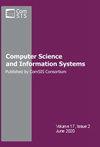Improving the Classification Ability of Delegating Classifiers Using Different Supervised Machine Learning Algorithms
IF 1.8
4区 计算机科学
Q4 COMPUTER SCIENCE, INFORMATION SYSTEMS
引用次数: 0
Abstract
Cancer Classification & Prediction Is Vitally Important for Cancer Diagnosis. DNA Microarray Technology Has Provided Genetic Data That Has Facilitated Scientists Perform Cancer Research. Traditional Methods of Classification Have Certain Limitations E.G. Traditionally A Proposed DSS Uses A Single Classifier at A Time for Classification or Prediction Purposes. To Increase Classification Accuracy, Reject Option Classifiers Has Been Proposed in Machine Learning Literature. In A Reject Option Classifier, A Rejection Region Is Defined and The Samples Fall in That Region Are Not Classified by The Classifier. The Unclassifiable Samples Are Rejected by Classifier in Order to Improve Classifier’s Accuracy. However, These Rejections Affect the Prediction Rate of The Classifier as Well. To Overcome the Problem of Low Prediction Rates by Increased Rejection of Samples by A Single Classifier, the “Delegating Classifiers” Provide Better Accuracy at Less Rejection Rate. Different Classifiers Such as Support Vector Machine (SVM), Linear Discriminant Analysis (LDA), K Nearest Neighbor (KNN) Etc. Have Been Proposed. Moreover, Traditionally, Same Learner Is Used As “Delegated” And “Delegating” Classifier. This Research Has Investigated the Effects of Using Different Machine Learning Classifiers in Both of The Delegated and Delegating Classifiers, And the Results Obtained Showed That Proposed Method Gives High Accuracy and Increases the Prediction Rate.利用不同的监督机器学习算法提高委托分类器的分类能力
癌症分类与预测对癌症诊断至关重要。DNA微阵列技术提供了基因数据,促进了科学家进行癌症研究。传统的分类方法有一定的局限性,例如,传统的DSS建议一次使用一个分类器进行分类或预测。为了提高分类精度,机器学习文献中提出了拒绝选项分类器。在拒绝选项分类器中,定义一个拒绝区域,落在该区域的样本不被分类器分类。为了提高分类器的准确率,分类器对无法分类的样本进行剔除。然而,这些拒绝也会影响分类器的预测率。为了克服单个分类器增加样本拒绝率而导致预测率低的问题,“委托分类器”在更低的拒绝率下提供了更好的准确性。不同的分类器,如支持向量机(SVM)、线性判别分析(LDA)、K近邻(KNN)等。已经求婚了。此外,传统上,同一学习器被用作“委托”和“委托”分类器。研究了在委托分类器和委托分类器中使用不同机器学习分类器的效果,结果表明提出的方法具有较高的准确率,提高了预测率。
本文章由计算机程序翻译,如有差异,请以英文原文为准。
求助全文
约1分钟内获得全文
求助全文
来源期刊

Computer Science and Information Systems
COMPUTER SCIENCE, INFORMATION SYSTEMS-COMPUTER SCIENCE, SOFTWARE ENGINEERING
CiteScore
2.30
自引率
21.40%
发文量
76
审稿时长
7.5 months
期刊介绍:
About the journal
Home page
Contact information
Aims and scope
Indexing information
Editorial policies
ComSIS consortium
Journal boards
Managing board
For authors
Information for contributors
Paper submission
Article submission through OJS
Copyright transfer form
Download section
For readers
Forthcoming articles
Current issue
Archive
Subscription
For reviewers
View and review submissions
News
Journal''s Facebook page
Call for special issue
New issue notification
Aims and scope
Computer Science and Information Systems (ComSIS) is an international refereed journal, published in Serbia. The objective of ComSIS is to communicate important research and development results in the areas of computer science, software engineering, and information systems.
 求助内容:
求助内容: 应助结果提醒方式:
应助结果提醒方式:


